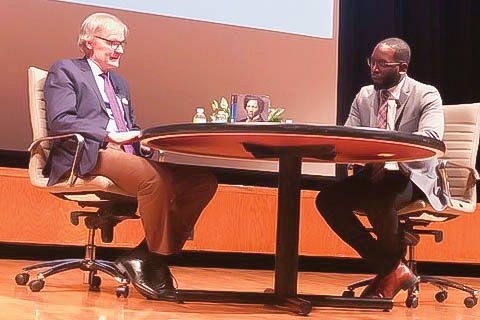
This fact, along with the former slave’s storied career as an abolitionist and civil rights icon “make his story so attractive to biographers, as well as to so many constituencies today” (xv). Like many biographers of famous, consequential figures, Blight argues that Douglass possessed paradoxical qualities. As a result, the historian has produced the most comprehensive and insightful study of Douglass’s life yet published. In his latest and most thorough analysis of the “Lion of Anacostia”- Frederick Douglass: Prophet of Freedom- Blight pulls off the difficult trick of capturing both Douglass’s outsized greatness and deep humanity. Blight has also contributed to recent editions of two of Douglass’s autobiographies and, in 1989, published his first book, Frederick Douglass’ Civil War: Keeping Faith in Jubilee (Louisiana State University Press).

Blight has published works on a variety of topics relating to the history of slavery and the antebellum era, most notably, his 2001 work Race and Reunion: The Civil War in American Memory (Harvard University Press), which details the nation’s abandonment of the war’s emancipationist legacy in the half-century after its conclusion in favor of reconciliation on the basis of a shared investment in white supremacy.

Blight, chronicling the life of someone of Frederick Douglass’s magnitude is an immense undertaking. Even for an esteemed scholar like Yale history professor David W.


 0 kommentar(er)
0 kommentar(er)
